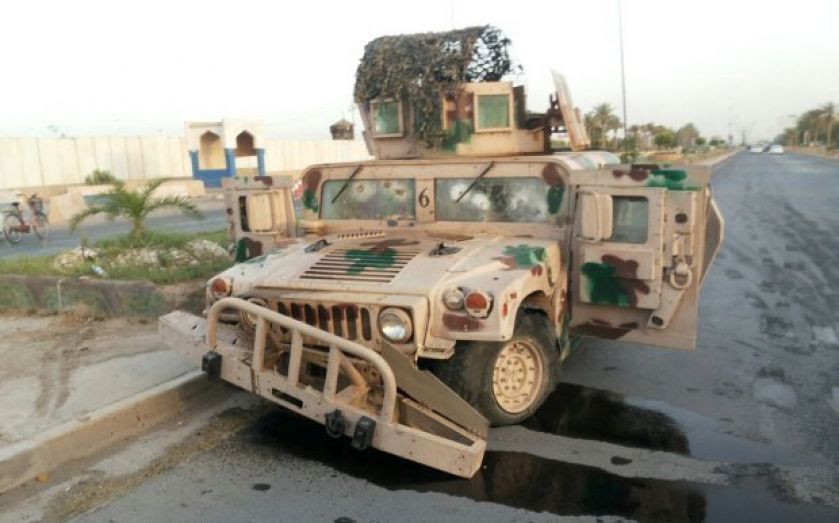Iraq crisis has traders on edge as militants take Mosul. Here’s what you need to know

The takeover of key Iraqi cities including Mosul and Tikrit by Islamic State of Iraq and al Sham (ISIS) forces has investors watching events closely.
Writing in City AM today, Michael Stephens, deputy director of RUSI Qatar, describes the events as bad "even by Iraq's standards" as the US-trained Iraqi Army units in and around Mosul "to all intents and purposes dissolved".
Reuters is now reporting the words of a Kurdish Peshmerga spokesman, who says that Kurdish forces are in full control of the oil city of Kirkuk after the retreat of the Iraq Army.
Societe Generale's Kit Juckes says that the events in the Middle East see it "once again at the forefront of financial markets' attention". Oil prices have been moving higher as the conflict continues, with Brent crude touching a two-week high of over $110 per barrel overnight.
The Middle East's role in determining energy market direction has been muted since the Iraq invasion of more than a decade ago, and the Iraq government maintains that key southern oilfields remain safe. In the words of the country's oil minister Abdul Kareem Luaibi: "very, very safe".
"The collapse of democracy in Iraq and the risk of extremists being the dominant political force in the region is already making some commentators question how long the US ‘hands-off’ policy will really be maintained," says Juckes.
Stephens asks whether Iraq can at this point hold together. "It is possible, but recent events reveal the state to be far weaker than previously imagined."
As far as investors are concerned, that's translated into weakness for Turkish currency and bonds, and "edginess across financial markets in general", says Juckes, which he says should be enough to trigger some position-trimming a pause in global markets.